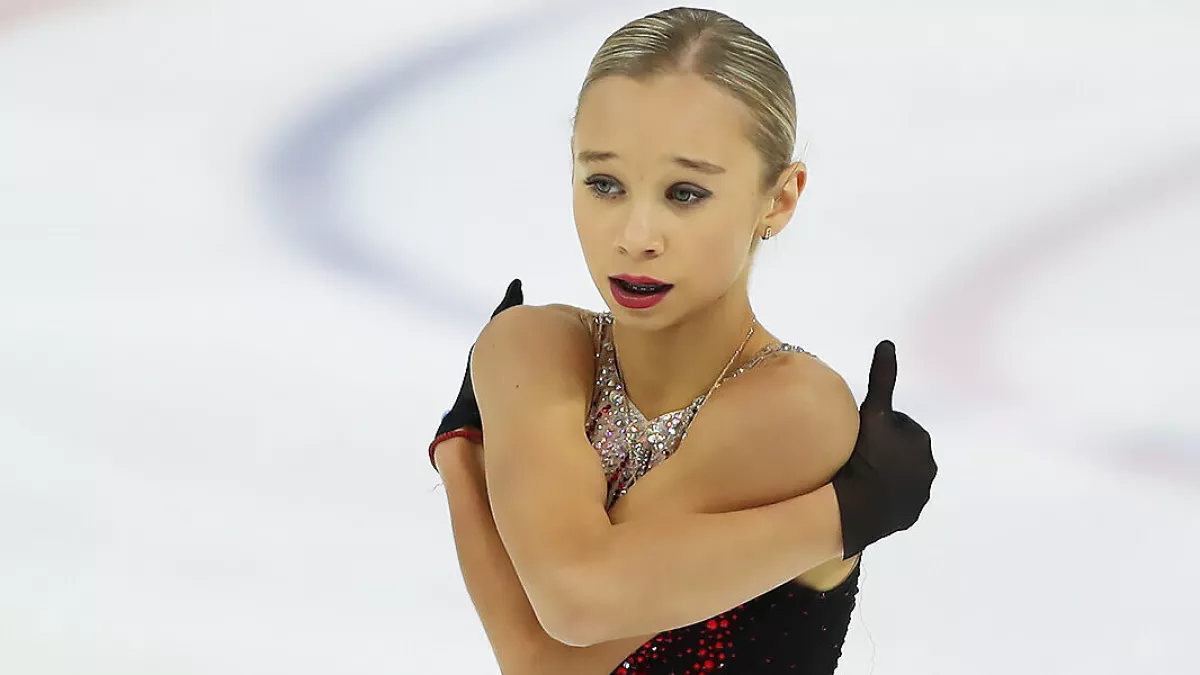Russia blocks teen skater from competing for Azerbaijan Jealousy on ice?
Today, figure skater Veronika Zhilina, who recently received Azerbaijani citizenship and happily shared the news on social media, turned 17.
The native of Arkhangelsk, who previously trained at Plushenko’s Academy, received a rather peculiar “birthday greeting” from the Russian Figure Skating Federation (RFSF). Despite not having competed for Russia—or in any competitions at all—for the past two years (she missed the 2023/24 season due to a shoulder injury and the 2024/25 season due to an aggravated back injury), the head of the federation, Anton Sikharulidze, announced that Veronika has been denied permission to compete for Azerbaijan.
In other words, a skater who has NEVER represented the Russian national team and, moreover, has NEVER competed at the senior level, has been denied the right to compete for Azerbaijan—despite the fact that over the past two years, she has spent more time living here than in Russia.
Moreover, neither of her two personal coaches—her mother, Lyudmila Alferova, nor Evgeni Plushenko himself—opposed her transition, and the Olympic champion even recommended her to represent Azerbaijan.

The decision by the Russian Figure Skating Federation becomes even more baffling when you consider that, at the same time they denied Zhilina, the federation granted permission for 21-year-old Karina Akopova and 26-year-old Nikita Rakhmanin to represent Armenia in pair skating.
In other words, this is a clear case of biased treatment towards the country—especially considering that Azerbaijan poses absolutely no competitive threat to Russia in this sport—alongside a blatant display of double standards in action.
And considering that, due to Russia’s current isolation—not only politically but also in the realm of sports—hundreds of top Russian athletes in tennis, wrestling, gymnastics, boxing, and other disciplines are now competing for various countries around the world, from the United States to Australia, the Russian Figure Skating Federation’s decision can only be described as an unfriendly gesture toward Azerbaijan.
What’s more, many of these athletes are far from being “written off” or athletes who have given up hope of ever making the Russian national team. On the contrary, they are often top-ranked in their disciplines or weight classes.
A very recent example is tennis player Daria Kasatkina, who in April of this year changed her Russian citizenship to Australian. And unlike the newly formed Armenian figure skating pair, Daria—who has long been ranked among the top ten female tennis players in the world—did not have to take any kind of two-year break from competition.
And that’s not even mentioning freestyle wrestler Chermen Valiev, who chose to represent Albania—a country neither wealthy nor known for wrestling. We all remember how, at the most recent European Championships, Chermen defeated the pride of the Russian wrestling school, Zaurbek Sidakov, in the final.
So, all these former Russian athletes are allowed to represent other countries—even at the cost of depriving Russia of potential victories on the international stage—but Veronika, whose greatest achievement is a silver medal at the Russian junior championships two years ago, is categorically denied this right?
The situation becomes even more illogical—if not borderline criminal—when you consider that the figure skater and her mother publicly accused her former coach and choreographer, Sergei Rozanov, of sexual harassment. They revealed what Veronika endured at just 11 years old.

“It happened in Kislovodsk during a training camp,” Zhilina told Match TV. “Sergey Rozanov came to my room, offered and persistently tried to convince me to let him give me a massage. I refused (at the time, I was staying in the room alone). The same thing happened in the gym, also in Kislovodsk, after warm-ups—he insisted again when all the athletes and coaches had already left the hall. He came to my room with a can of beer and trained me there.”
Co-owner of Plushenko’s Academy, Yana Rudkovskaya, noted that she learned the details of the situation back in 2021 when Rozanov was leaving the academy. She also said that the coach denies the allegations made against him. However, according to Rudkovskaya, she does not believe Rozanov’s denials, as he had once lied to her and Evgeni Plushenko “about a very important matter,” the truth of which they later learned “from reliable sources.”
Rudkovskaya also revealed that Zhilina herself had not allowed her parents to report Rozanov’s harassment for five years.
And now, the Russian Figure Skating Federation is effectively mocking Zhilina, deliberately inflicting psychological harm on a teenager and pressuring her to return to the “motherland.” At this point, one could accuse the Russian side itself of intentional actions aimed not only against Azerbaijan—which has given shelter to a young athlete recovering from both physical and emotional trauma—but also against their own former student, who simply chose to trade cold Russia for warm and welcoming Azerbaijan.
By Vugar Vugarli, exclusively for Caliber.Az








